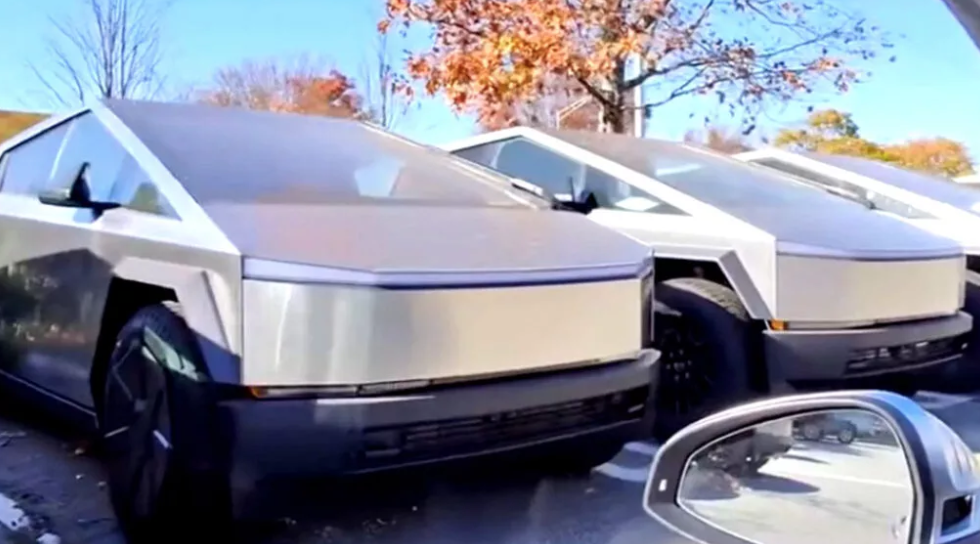Tesla’s long-hyped Cybertruck is hitting a roadblock—literally—in suburban Detroit, and local officials aren’t happy about it.
The futuristic electric pickup truck, once billed by Elon Musk as a revolution in automotive design, has struggled to meet its sales targets since launching in late 2023. Despite Tesla’s claim of over a million reservations, only around 40,000 Cybertrucks were sold last year—far short of the projected 250,000 units. And now, the company is facing another headache: what to do with all the unsold inventory.

Parking Problems in Farmington Hills
In Farmington Hills, Michigan, dozens of unsold Cybertrucks and other Tesla models have been spotted taking up multiple rows of parking spaces at the Hunter’s Square shopping center—a run-down lot already marked by closures of big-box retailers like Bed, Bath & Beyond and Torrid. While the center still hosts a Buffalo Wild Wings, it has largely fallen into disuse, making it a seemingly ideal (if unofficial) storage yard for Tesla.
But there’s just one problem: storing vehicles on this property violates city zoning codes.
Charmaine Kettler-Schmult, the city’s director of planning and community development, confirmed to Crain’s Detroit Business that the landlord had been notified of the violation. However, enforcement “takes time,” she admitted. That hasn’t stopped frustration from building as local officials grapple with a scenario that combines corporate overreach with urban blight.
Why Are Cybertrucks Piling Up?
Tesla’s recent launch of a showroom nearby in West Bloomfield may have something to do with the sudden overflow. It’s speculated that the vehicles parked at Hunter’s Square were delivered to support that location but had nowhere else to go due to limited lot space.

This is not an isolated incident. Similar Tesla “overflow lots” have popped up across the U.S.—in places like Missouri, Arizona, and Texas—raising broader questions about the company’s production strategy and EV market demand.
A Sales Strategy in Decline?
Tesla’s Cybertruck has faced criticism for its unconventional design, high price tag, and long production delays. To boost interest, the company has rolled out several incentives in recent months, including:
- A new, lower-priced single-motor RWD version at $69,990
- Discounts and leasing deals on higher trims
- Free Supercharging incentives
Despite these efforts, the Cybertruck continues to underperform compared to more conventional electric pickups like Ford’s F-150 Lightning.
The Bigger Picture
The scene unfolding in Farmington Hills is more than a local zoning dispute—it’s a snapshot of Tesla’s growing pains in a maturing EV market. What was once a symbol of innovation is now drawing criticism for its real-world impact on communities, logistics, and expectations.
As cities like Farmington Hills push back against these makeshift storage solutions, Tesla may need to rethink how it handles excess inventory—or risk further backlash from both regulators and residents.
Here is the video from Instagram
View this post on Instagram
What do you think about Tesla’s Cybertruck situation? Is it just a logistical hiccup or a sign of deeper trouble for the electric vehicle pioneer? Let us know in the comments.


